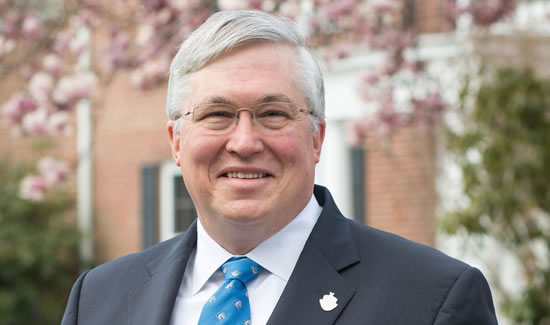GUEST EDITORIAL
Advice from President Tim Hall of Mercy College

President Tim Hall of Mercy College
College math can be pretty tough for students. I don’t mean college algebra or statistics, but the math involved in choosing a college and paying for a college education.
For example, a student of limited means might choose a public institution, whether a community college or a four-year institution, because of its relative affordability. In New York, a student might hope to take advantage of the “free public college tuition” recently made available to a limited number of students. Of course, college math doesn’t end with just tuition: there are other expenses a student must calculate. In any event, the relative affordability of public institutions often comes at the price of large classes and—at least in the case of community colleges—relatively few support services.
On the other hand, a student might choose to attend a private college because of its smaller classes and greater number of support services. Unfortunately, most private institutions are less affordable than public colleges, and students may find themselves saddled with excessive levels of debt, even if they can afford to graduate.
So, what can be done in the face of math like this? Well, here at Mercy College, through the Mercy Scholars program, we are re-writing the equation. We start with a private college experience—no huge lecture halls, no getting lost and overlooked if you are a student. We have excellent faculty, but one of their most important contributions is that they get to know their students personally. They call on them by name; and their students get to know them. Mercy College is the kind of college John Henry Newman had in mind when he spoke of the ideal university as “an alma mater, knowing her children one by one: not a foundry or a mint or a treadmill.” We don’t do factory education at Mercy.
Next, we fight hard to make a college education affordable for all of our students. And with the help of some special friends—a college can never have too many friends—the Mercy Scholars program has re-written the equation for college math so that qualifying students are assured of graduating without any tuition or book-related debt. For students who are eligible for full federal and state need-based support, Mercy Scholar supporters join with the college itself to make sure that four years of tuition and text-book expenses are fully covered. Students don’t have to sacrifice the personal attention of a private education to avoid tuition and book-related debt.
Some of the Mercy Scholar supporters are Bob and Kate Niehaus, Jim and Marsha McCormick, Irene Buckley, and my friends Dr. Pola Rosen and Dr. Charlotte Frank. Here’s what I can say about all of them: they believe in our Mercy Scholars, they believe in their potential, in their capacity to be college students and college graduates and to make a difference in their lives and in the lives of their families and communities because someone believed in them and gave them a chance. They’ve committed not only to support your dreams but to cheer you on.
Welcome to the 2017 cohort of Mercy Scholars and to the donors who are making their dreams possible!#
